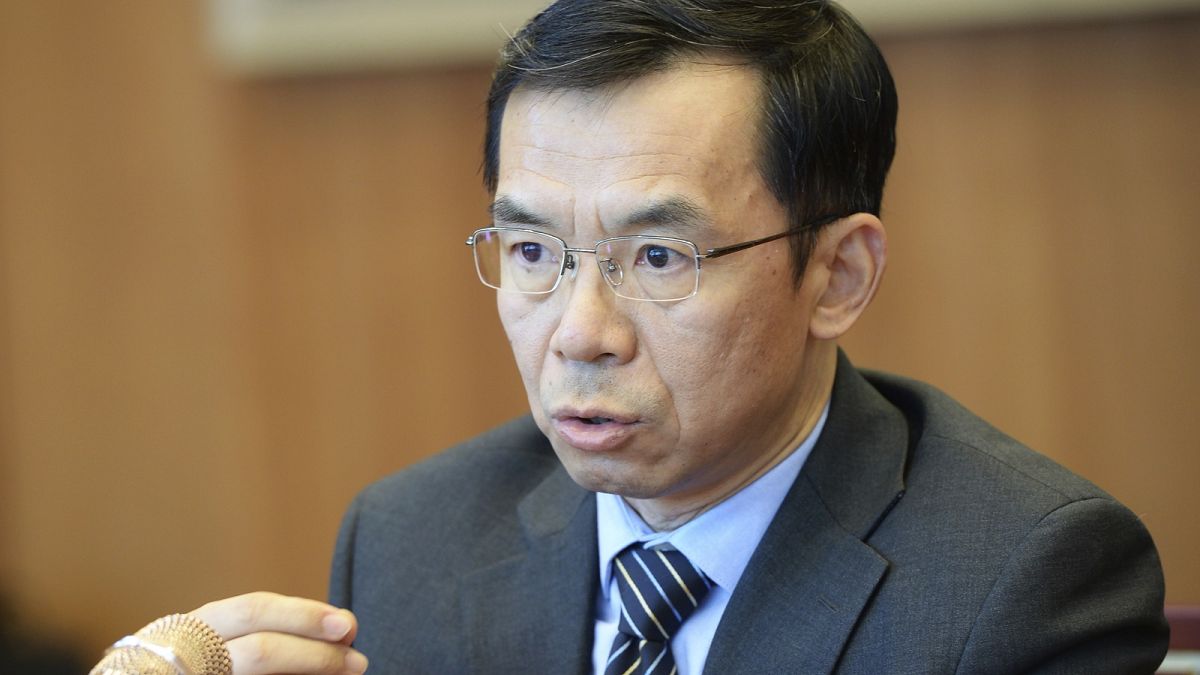The Chinese government was forced to clarify the controversial comments made by its ambassador to France.
The Chinese government went into damage control mode this week after its ambassador to France, Lu Shaye, claimed the countries that had emerged from the collapse of the Soviet Union lacked "effective status" under international law.
The remarks, made in a TV interview, made international headlines over the weekend and prompted a furious reaction from Estonia, Latvia and Lithuania, which denounced the words as "completely unacceptable" and demanded an immediate retraction.
As more European countries joined the chorus of critics, Beijing issued an official explanation in a bid to contain the diplomatic fallout.
"China respects the sovereignty, independence, and integrity of all countries, and safeguards the purposes and principles of the United Nations Charter," said Mao Ning, spokesperson of the Chinese Ministry of Foreign Affairs.
"The Soviet Union was a federal state and as a whole was one subject of international law in international relations. This does not negate the republics' status as sovereign countries after the Soviet Union's dissolution."
In a separate statement, the Chinese embassy in France said the ambassador's words were not a "political declaration, but an expression of personal views during a televised debate" that "should not be over-interpreted."
"China's position on relevant issues has not changed," the statement said.
The controversy relates to an exchange between Ambassador Lu and LCI presenter Darius Rochebin.
At one point during the interview, Rochebin asked Lu whether Beijing considered Crimea, the peninsula illegally annexed by Russia in 2014, to be part of Ukraine.
"It depends on how we perceive this problem," Lu said.
"There's a history here. Crimea was originally part of Russia. It was (Nikita) Khrushchev who offered Crimea to Ukraine during the period of the Soviet Union."
Rochebin then interrupted and pointed out that, according to the borders recognised under international law, Crimea was indeed part of Ukraine.
"Even these ex-Soviet Union countries do not have effective status, as we say, under international law because there's no international accord to concretise their status as a sovereign country," Lu replied.
Asked by the presenter to clarify what he meant by that, Lu said it was unnecessary to "quibble about this sort of problem" and added the most important thing was to "achieve a ceasefire" in Ukraine.
The moment quickly went viral on Twitter and caught the attention of the three Baltic states, who voiced their shock and outrage at Lu's particular interpretation of history.
'Narratives we've been hearing from Moscow'
The diplomatic spat continued on Monday as foreign affairs ministers from the European Union met in Luxembourg for a regular meeting.
"First of all, it's completely unacceptable," said Lithuania's Gabrielius Landsbergis.
"We're not post-Soviet countries, we're countries that were illegally occupied by the Soviet Union."
Landsbergis said the three Baltic states planned to summon the Chinese representatives based in their countries to "ask for clarifications."
"This is a new phenomenon, we have not seen this happening before," Landsbergis added, drawing a parallel between Lu's comments and Russian propagandists who question Ukraine's sovereignty and territorial integrity.
"These are the narratives that we've been hearing from Moscow. And now it's been sent out by another country which is, in our eyes, an ally of Moscow in many cases – if not militarily, politically at least," Landsbergis said.
Estonia's new foreign affairs minister Margus Tsahkna expressed a similar view and urged Beijing to give an explanation, while Latvia's Edgars Rinkēvičs demanded a "complete retraction."
The French government voiced its "dismay" at Lu's remarks and expressed "full solidarity with all of our allies and concerned partners, who have won a long-awaited independence after decades of oppression."
The latest diplomatic controversy landed at a very delicate moment in EU-China relations, with growing tensions over Beijing's refusal to condemn Russia's invasion of Ukraine, its efforts to promote a peace deal that Europeans see as biased and selective and the fraught situation in the Taiwan Strait.
Speaking to reporters at the end of Monday's meeting, Josep Borrell, the EU's foreign policy chief, who had also criticised Lu's comments, welcomed the explanations delivered by Beijing as "good news."
"It was also important – and I want to signal that – that Beijing has distanced itself from the unacceptable remarks of its Ambassador to Paris," he said.
Borrell then added the EU needed to "update" and "recalibrate" its strategy towards China to take into account all the developments of recent years. The last EU strategy on China dates back to 2019.
This story has been updated with new developments.
